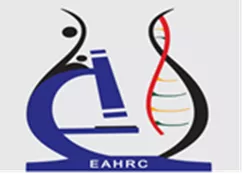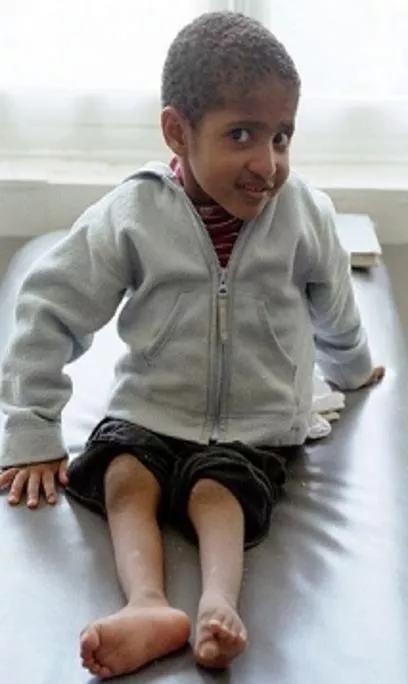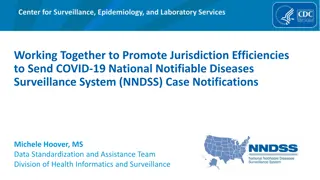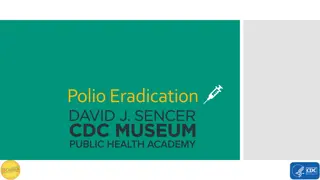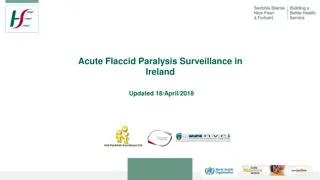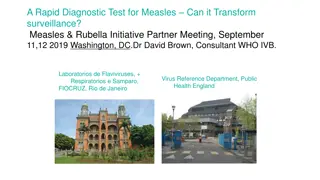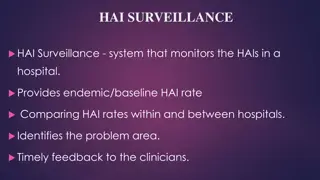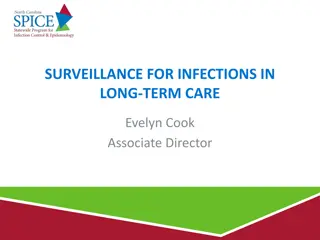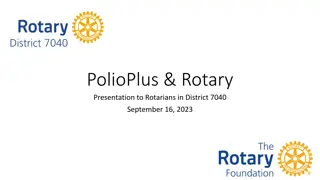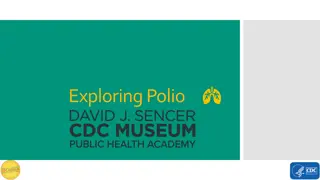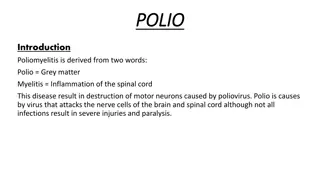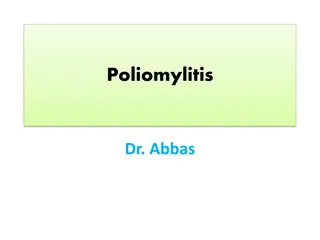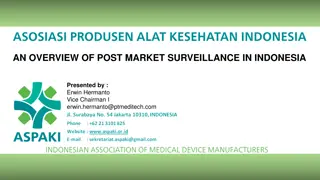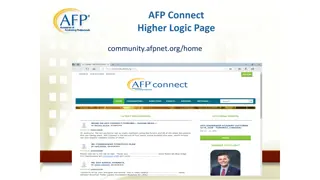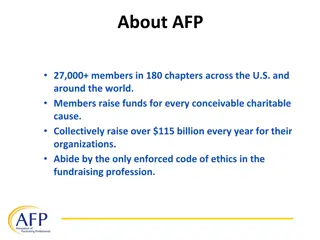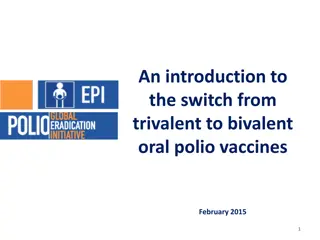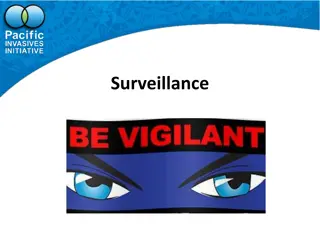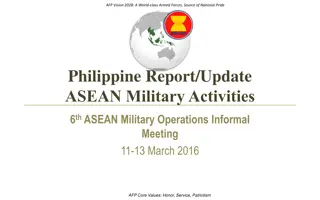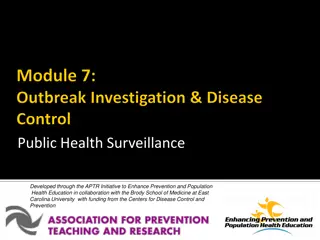Enhancing AFP Surveillance for Polio Eradication in East Africa
This presentation discusses the importance of Acute Flaccid Paralysis (AFP) surveillance in detecting poliomyelitis cases, with a focus on the National Stop Transmission of Polio Mission in Kasese District, Uganda. The goal is to eradicate poliovirus through strategies such as immunization campaigns and active surveillance to ensure no child suffers from paralytic poliomyelitis. The presentation outlines the background of polio re-infections in Uganda, the objectives of the NSTOP mission, and the steps involved in conducting effective AFP surveillance in districts with low AFP rates. The aim is to build capacity among health workers and community members in preventing vaccine-preventable diseases.
Download Presentation

Please find below an Image/Link to download the presentation.
The content on the website is provided AS IS for your information and personal use only. It may not be sold, licensed, or shared on other websites without obtaining consent from the author. Download presentation by click this link. If you encounter any issues during the download, it is possible that the publisher has removed the file from their server.
E N D
Presentation Transcript
6thEast African Health and Scientific Conference & International Health Exhibition and Trade Fair, 29th-31stMarch 2017 Bujumbura, Burundi Surveillance for Acute Flaccid Paralysis (AFP), National Stop Transmission of Polio Mission in Kasese District, Western Uganda, September 2015 Presenter: Alice Namugamba, MPH Co authors: Claire Nalweyiso Bibiana Akello Makerere University School of Public Health MakSPH-MASTER OF PUBLIC HEALTH
INTRODUCTION AFP is sudden onset of weakness or paralysis over a period of 15 days in a patient aged less than 15 years age AFP (acute flaccid paralysis) surveillance is the gold standard for detecting cases of poliomyelitis Poliomyelitis is a disease caused by poliovirus The four steps of surveillance are: finding and reporting children with acute flaccid paralysis (AFP) transporting stool samples for analysis, isolating and identifying poliovirus in the laboratory MakSPH-MASTER OF PUBLIC HEALTH
Background In 2012, WHO declared polio a global public health emergency Uganda is still among the countries with recurring reinfections of polio virus. Kasese was one of the selected districts in Uganda with actual non polio AFP rate of less than 1/100,000 (the actual rate is 0.6/100,000) as of August 15, 2015. MakSPH-MASTER OF PUBLIC HEALTH
NSTOP MISSION Main goal of the NSTOP mission: To completely eradicate all wild, vaccine- related and Sabin Polio viruses, such that no child ever again suffers paralytic poliomyelitis This goal will be achieved through polio eradication strategies immunization , National immunization Days (NIDs), Acute Flaccid Paralysis (AFP) quality surveillance and Mop-up campaigns like High routine NSTOP mission aims at carrying out supportive supervision, active search and capacity building of health workers knowledge/skills MakSPH-MASTER OF PUBLIC HEALTH
Objectives To conduct active surveillance in poor performing districts with actual non-polio AFP rate of less than 1/100,000 To build capacity of district health workers, community health workers and community members in vaccines preventable diseases surveillance (VPDs) To conduct 60 days follow up of late AFP cases that had onset of paralysis. MakSPH-MASTER OF PUBLIC HEALTH
Location of study area- Kasese MakSPH-MASTER OF PUBLIC HEALTH
Methods Study population; All children 15 years and below Study design; Cross sectional study done in September 2015 Sample size; Kasese district has a total of 106 health facilities both public and Private Not for Profit. Data collection methods NSTOP team together with biostastician and health facility HMIS focal person reviewed documents; OPD/IPD and Physiotherapy registers for the last 60 days from all health facilities visite. All missed cases of AFP were line listed Knowledge of Health workers and community health workers on VPDs was rapidly assessed and gaps were addressed instantly. Sensitization sessions through group discussions and interviews Involved orienting health workers, community health workers and community members on the overview of VPDs and community case definitions for AFP, AFP surveillance steps, Measles, AEFI and NNT. Health workers were also sensitized on the collection of the samples for suspected AFP and measles cases, and how to fill in the Case Investigation Forms. MakSPH-MASTER OF PUBLIC HEALTH
Results From record reviews, the surveillance team identified 2 unreported and uninvestigated AFP cases A total of 2 reported and investigated AFP cases were identified by community health workers together with the surveillance team And stool samples were taken to UVRI laboratory, Entebbe, though wild polio virus was not detected from the stool samples Knowledge on AFP case definition and surveillance steps was low among health workers A total of 90/106 health facilities were visited during the active search A total of 135 health workers, 24 community health workers and over 1500 community members were sensitized MakSPH-MASTER OF PUBLIC HEALTH
Conclusion Kasese district s surveillance system was still weak Knowledge on AFP case definition was still low And steps of surveillance not well known to Health workers Low numbers(24) of community health workers involved in AFP surveillance MakSPH-MASTER OF PUBLIC HEALTH
Recommendations The District Health Team should continuously encourage health workers on timely submission of reports There is need for continued sensitization on VPDs in all health facilities and communities The District Surveillance Focal Person should have active search and surveillance preparedness work plan in place annually Increased involvement of community health workers in disease surveillance is vital. MakSPH-MASTER OF PUBLIC HEALTH
Acknowledgements Kasese community health workers Kasese community members Kasese District Health Office AFENET/MOH/WHO/NSTOP Mission Makerere University School of Public Health THANK YOU THANK YOU MakSPH-MASTER OF PUBLIC HEALTH





